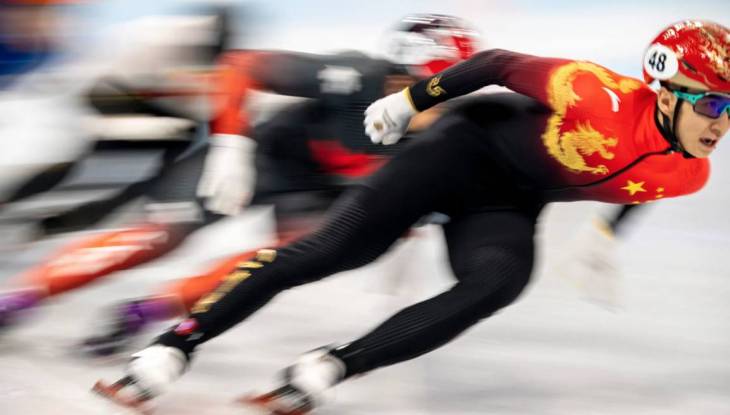Symbolism of the Beijing Winter Olympics 2022
By Stephen.Ndegwa, February 6, 2022
Amid the inconsequential diplomatic boycott by some countries, the Winter Olympics kicked off on February 4 to a great start as planned. There was really no two ways about it, adding the fact that the COVID-pandemic is still spreading around the world. The organizers of the games could not leave anything to chance.
After 14 years, the Olympic cauldron has been lit once again in Beijing, making the city the world’s first to host both the Summer and Winter Olympic Games. Committed to organizing a green, inclusive, open and clean Games, China has made every effort to counter the impact of COVID-19, earnestly fulfilled its solemn pledge to the international community, and ensured the smooth opening of the Beijing Winter Olympic Games as scheduled.
Already, team China have started by giving a good account of themselves by winning its first gold medal on Saturday. The host nation took the coveted prize in the mixed team relay in Short-Track Speedskating. The triumph was not without drama after the United States was disqualified for interfering with the Chinese team during an exchange.
Well, what the U.S. was fearing most by trying to sabotage the games happened on Saturday when Chinese President Xi Jinping hosted a banquet to welcome international dignitaries who attended the opening ceremony of the Olympics at the Great Hall of the People in Beijing. Xi correctly noted that by successfully hosting the Winter Olympics, China had restored faith in the Olympic movement as a vehicle for carrying humanity’s aspirations for peace, solidarity and progress.
During the dinner, Xi made several pledges on China’s continued commitment to sustain the Olympics spirit even at the toughest of times. First, China shall keep in mind the original aspiration of the Olympic Movement and jointly uphold world peace. “We need to uphold mutual respect, equality, dialogue and consultation, strive to bridge differences and eliminate conflict, and work together for a world of durable peace,” the president stated.
Second is promoting the spirit of the Olympic Movement to help address the common challenges facing the international community through solidarity. Humanity is today faced with the COVID-19 pandemic, climate change and terrorism which requires the international community to stand closer together.

“We need to practice true multilateralism, uphold the international system centered on the United Nations and the international order underpinned by international law, and work together to build an international family of harmony and cooperation,” Xi noted.
Thirdly, Xi appealed for embracing the Olympic movement in the constant pursuit of human progress: “We need to follow the trend of the times, stay true to humanity’s common values of peace, development, equity, justice, democracy and freedom, promote exchanges and mutual learning between civilizations, and work together to build a community with a shared future for mankind.”
China has just entered the Year of the Tiger according to the lunar calendar. Tiger is a symbol of strength, courage and fearlessness. Indeed, the Tiger was the ideal animal to symbolize what the country needed this year to ensure that the Olympics are successful. Moreover, humanity will need the strength of a tiger to overcome the insurmountable challenges it faces going forward.
This universal message resonated with the chairman of the International Olympic Committee (IOC) Thomas Bach who said during the games opening night on Friday: “This Year of the Tiger is also an Olympic Year. Both the Year of the Tiger and the Olympic Tiger stand for ambition, courage and strength. Today, thanks to this ambition, China is a winter sport country. Well over 300 million people are engaged in winter sports in about 2,000 ski resorts and ice rinks.”
Delegations from over 90 countries and regions attended the ceremony, together with world leaders including Russian President Vladimir Putin, Serbian President Aleksandar Vucic, Argentine President Alberto Fernández, and UN Secretary-General Antonio Guterres. In the coming couple of weeks, some 2,900 athletes will compete in 109 events of 15 disciplines under seven sports.